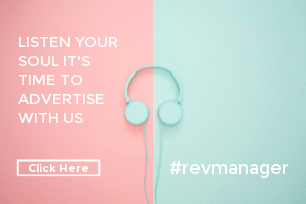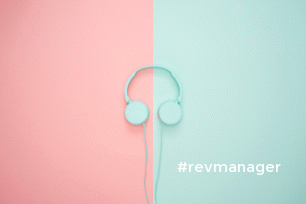The Tourism and specifically Hospitality is one of the most driven industry by customer loyalty and brands trust. Many customers make their hotel choose based on experiences, service, feelings and at the end by the price.
We can influence and make consumer choice easier
On high competitive environments, the ability to influence hotels choice is becoming more and more important, with countless international chains struggling each other by their loyalty programs increase. These companies guest rewards are made through hotel points, credit cards and through partnerships with airlines for wider coverage. Using data provided by guests, the hotel industry has been actively exploring the implementation of BI programs [1].
BI systems represent a competitive advantage for hotels and travel agencies
While many IT [2] (only as a tool) can be easily imitated and replicated, BI systems can be used methodically to gain a sustained competitive advantage over competitors in the industry. These systems can provide a competitive advantage for companies that feel high competitive pressure, for example common at urban centers. All these systems, can be simpler or more complex, depending on our type of business but they are always generators of useful intel about the guests.
Nowadays BI systems are accessible to anyone
BI systems [1:1] allow hotel units a systematic analysis, through the collection of statistical data and intensive processing of data obtained real advantage among competitors. This data through OLAP and DataMining systems will allow us to understand patterns of behaviour and assist in targeting our audience. This tool is extremely important, it will help administrations and financial management to make decisions based on qualified scientific data.
Self- service Business Intelligence (BI) platforms have revolutionized the accessibility from professionals to this kind of tool.
Currently we can see a transition of external distribution system systems, to process automation and gather consumer data, almost directly. Are our professionals properly trained to take advantage of the information already in systems from hotels or travel agencies?
With constant growth of data volume these systems become mandatory
With IoT [3], technology currently in place is itself a challenge. We need companies to adopt new technologies available in the market for the benefit their guests increasing the service levels provided. However, these organizations must be able to manage a huge quantity of intel, needing all possible help from these tools.
Nowadays companies are facing a challenge, the fact is that technology evolves at the speed of light and resources are limited. In this way we can do another question.
Are people and organizations ready to keep up all these changes?
In the Tourism and Hotel sector, the technological aspect assumes an increasing importance specifically on revenue generation and business performance. However, during more than a decade of experience on the sector, we saw a profound lack of knowledge of the entire IT architecture in the hotels and travel agencies can be easily detected. People who have decision-making power are not sensitized to the importance of their subject matter and are unaware deepen its operation and advantages in new business model’s implementation.
It’s urgent to raise awareness among hotel managers about this subject, hoteliers are essential for companies competitiveness, modernizing them into competitive and digital environments.
Companies are starting to be aware of the role of revenue management inside hotel, however, if we look at their reality, it turns out that most of the people who fill the Revenue functions in the companies come from the sales or marketing areas. Not having any specific training in Revenue Management or data analysis, the need for hotel companies to hire people oriented to numbers and analysis is essential to start new and innovative pricing techniques.
How many people can be able to work the information from system databases, for analysis in an effective way?
Nowadays reality shows us that revenue managers have a variety of tools and useful data to learn more about guests, however they are not knowing how to take advantage of this information, it’s not intelligible for organizations managers.
BI can have a huge impact on revenue volume
Any experienced revenue manager knows that in the last five years (perhaps less) the in-house revenue management and digital marketing have changed dramatically. Now that’s all about an effective digital channel distribution strategy.
"We are not only responsible for implementing processes, we need to make sure that we are filling hotels with the most profitable guests."
This only became an reality if we have an organizational strategy and a revenue optimization culture implemented. The sales, marketing, finance and revenue management department must be in perfect tuned, only in this way it will be possible to generate a greater return on investment than our competitors. However, the lack of knowledge about consumer behaviour in digital environments in hotel units it’s remarkable and many professionals still don’t understand its real significance.
"In a medium-sized unit, this lost share of business can represent between 25% and 35%, which can often be translated into 1 million euros on the end of the economical year."
The exact data of a guest it’s what make them loyal customers, come back and enjoy another stay or even recommend to a family member or friend. If this repetition was rare in the past for certain tourist destination, nowadays with short flights at low cost, this become a day by day reality.
Future considerations:
Every revenue management implementations must be follow by an applicable technological landscape for every company reality, professionals can provide meaningful revenue responses, meeting the wishes of all the administrations while them ensure their workplace. Those professionals must have freedom for action and do their work properly, always having in mind the best possible total revenue performance. They must have adequate training and knowing all processes that lead to value creation inside business units. In Tourism and Hotel sector, technological systems have a greater importance in revenue production and business performance, however, there is a profound lack of knowledge about IT systems and consumer behaviour in digital environments. We can also verify that there is a direct relationship between the level of investment in IT structures and the final service quality to the guest. Service innovations are essential for business competitiveness and modernization on competitive environments, increasing revenues and a greater guest satisfaction.



